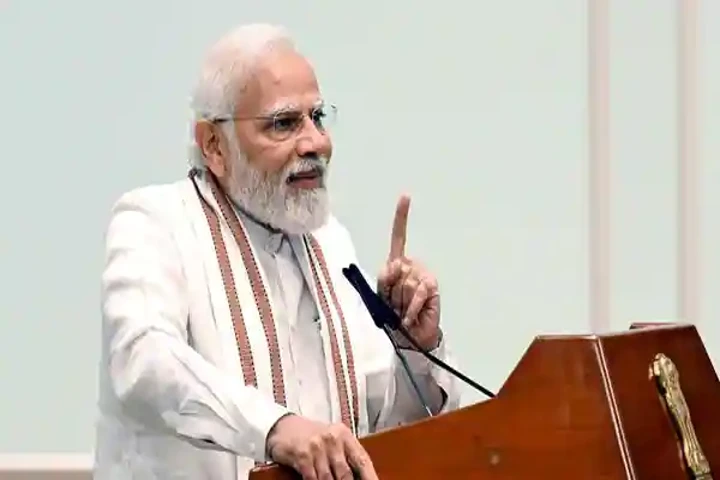

Advocating a proactive approach, Prime Minister Narendra Modi asked the participants to forecast the needs of their sector, visualizing the material needs to execute projects
Prime Minister Narendra Modi on Saturday invited the private sector to energetically participate in the grand national infrastructure plan, reviving a tradition that has roots in ancient India.
Alluding to India’s rise as a civilizational state, PM Modi, during a post-budget webinar on Saturday, spotlighted that people need to draw inspiration from India’s well-rooted tradition of taking on iconic infra projects.
He also stressed that establishing world-class infrastructure was key to India’s transition into a fully developed country by 2047—an aim that he had announced during his August 15 address. PM Modi had also described the next 25 years as an era of Amrtikal.
Addressing 700 CEOs and MDs, PM Modi pointed out that Uttarapath built by Chandragupta Maurya was a prime example of a grand infra project that our ancestors had undertaken. The initiative was further fleshed out by emperor Ashoka. Sher Shah Suri upgraded the enterprise, which the British finally turned into the Grand Trunk Road connecting Peshawar in the west with Kolkata in the east.
“The importance of highways has been acknowledged for centuries in India”, the Prime Minister said. Referring to riverfronts and waterways as well, the Prime Minister pointed to the Ghats of Banaras which were directly connected to Kolkata across the Ganga. He also cited Kallanai dam of Tamil Nadu, which had been built 2,000 years ago, but was functional today as well.
In tune with our historical tradition, the Prime Minister cited the PM Gatishakti National Master Plan that would club world-class transport infrastructure with economic opportunities and ground-breaking development.
He pointed to the adoption of a holistic approach for developing infrastructure was not limited to rail, road, ports, and airports anymore but included other dimensions storage of farm produce, wellness centres, new railway stations, and pucca houses being delivered to every family.
“Infrastructure development is the driving force of the country’s economy”, the Prime Minister remarked, inviting the private sector to be fully invested in this historic task, which was already underway.
“Now we have to improve our speed and move in top gear”, he said. Noting that PM Gati Shakti Master Plan is a critical tool that integrates economic and infrastructural planning with development, the Prime Minister said, “Gati Shakti National Master Plan is going to change the face of India’s infrastructure and its multimodal logistics.”
He added: “With quality and multimodal infrastructure, our logistic cost is going to reduce further in the days to come. This will have a positive impact on the goods made in India, on the competitiveness of our products. Along with the logistics sector, there will be a lot of improvement in ease of living and ease of doing business.”
Advocating a proactive approach, the Prime Minister asked the participants to forecast the needs of their sector, visualizing the material needs to execute projects. “We need an integrated approach so that the roadmap for the future remains clear. PM Gati-Shakti National Master Plan has a big role in this.”
The Prime Minister emphasized that physical and social infrastructure should be developed simultaneously. He stressed that skill development, project management, financial skills and entrepreneurship must be developed holistically. He called for a programme of skill development that should be guided by the future needs of big and small industries.
Also Read: PM Modi invites investors to turn India into a global green-energy leader
Family members of leading Baloch activist and Baloch Yakjehti Committee (BYC) leader, Sammi Deen Baloch…
Chile President Gabriel Boric, who is on a State visit to India, has expressed keen…
The French Embassy in India said on Monday that as France assumes the monthly presidency…
BNP-M President Sardar Akhtar Mengal said on Monday that his party's sit-in demanding the release…
Prime Minister Narendra Modi on Tuesday jointly addressed the press with Chile President Gabriel Boric…
INSV Tarini, part of the Navika Sagar Parikrama II expedition, arrived in Cape Town, South…